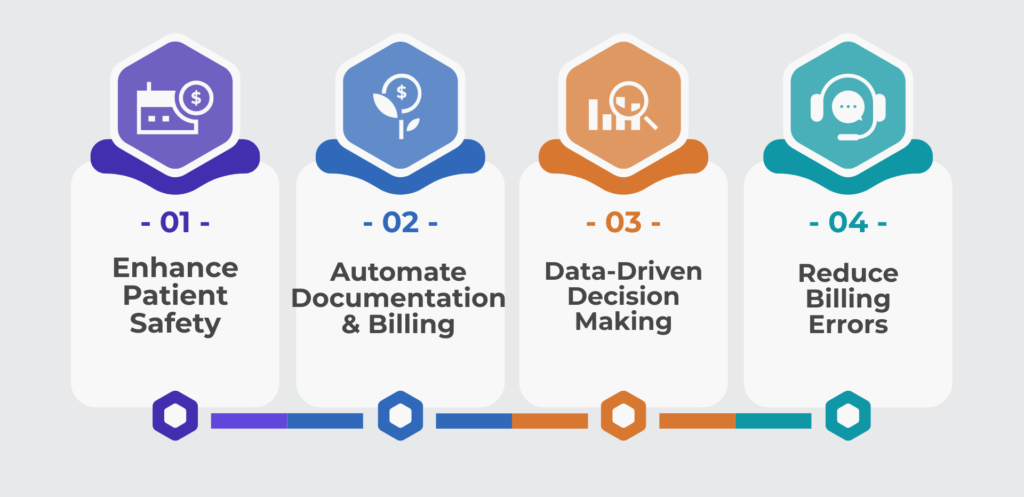Revenue Cycle Management (RCM) plays a critical role in the healthcare industry, ensuring that medical service providers receive timely and accurate payments for the services they render. RCM Analytics is a powerful tool that enables healthcare organizations to optimize financial performance, reduce claim denials, and improve overall efficiency. By leveraging advanced data analytics, healthcare providers can make informed decisions that enhance revenue generation and streamline the billing process.
In this article, we will explore the importance of RCM, its key components, benefits, and how it can transform medical billing processes.
What is RCM Analytics?
RCM Analytics refers to the process of collecting, analyzing, and interpreting data related to revenue cycle management in healthcare. It involves the use of data-driven insights to enhance various aspects of medical billing, including claim submissions, reimbursements, and denial management. By utilizing analytical tools, healthcare providers can gain a clear understanding of their financial performance and identify areas that require improvement.
Key Components of
- Claims Processing Analytics – Helps identify errors in claims before submission, reducing the chances of denials.
- Denial Management Analytics – Provides insights into common reasons for denials and suggests corrective actions.
- Payment Reconciliation – Ensures that payments received match expected reimbursements from payers.
- Patient Payment Trends – Analyzes patient payment behavior to optimize collection strategies.
- Revenue Leakage Detection – Identifies missed revenue opportunities and prevents financial losses.
- Compliance Monitoring – Ensures adherence to billing regulations and prevents fraudulent activities.

The Role of RCM in Medical Billing
Enhancing Billing Accuracy
Errors in medical billing can lead to claim denials, delayed reimbursements, and financial losses. Analytics helps detect coding errors, missing documentation, and incorrect patient information before claims are submitted. By improving billing accuracy, healthcare organizations can increase their claim acceptance rates and reduce the time spent on rework.
Optimizing Revenue Collection
One of the significant challenges in medical billing is ensuring that healthcare providers receive full payment for their services. RCM Analytics enables organizations to track unpaid claims, identify slow-paying insurers, and implement strategies to accelerate collections. Additionally, it helps monitor patient payment behavior and suggests ways to improve self-pay collections.
Reducing Claim Denials
Denial management is a crucial aspect of revenue cycle management. RCM allows healthcare providers to analyze historical claim data and identify common denial patterns. By understanding the reasons behind denials, organizations can take proactive measures to prevent them, such as improving documentation and ensuring compliance with payer requirements.
The Key to Efficient Medical Billing & Revenue Growth
Streamlining Workflow Efficiency
Medical billing involves multiple steps, from patient registration to final payment reconciliation. Inefficiencies in any stage can lead to financial losses and operational bottlenecks. RCM Analytics helps healthcare organizations streamline workflows by identifying redundant processes and automating repetitive tasks. This improves overall efficiency and allows billing teams to focus on high-value activities.
Compliance and Regulatory Adherence
Healthcare billing is subject to various regulations, including HIPAA, Medicare guidelines, and payer-specific rules. Non-compliance can result in penalties, claim rejections, and legal issues. RCM Analytics ensures that billing processes align with regulatory requirements by tracking compliance metrics and flagging potential violations. This minimizes the risk of audits and ensures smooth revenue flow.
Key Benefits of Implementing RCM
Improved Cash Flow
By identifying delayed payments and reducing claim denials, RCM helps healthcare providers maintain a steady cash flow. Timely reimbursements ensure that organizations can meet their financial obligations without disruptions.
Data-Driven Decision Making
RCM Analytics provides real-time insights into financial performance, allowing decision-makers to make informed choices. Whether it’s adjusting billing strategies or negotiating better payer contracts, data-driven decision-making enhances overall revenue cycle efficiency.
Enhanced Patient Experience
Billing transparency and simplified payment processes improve the patient experience. RCM helps providers offer clear billing statements, set up flexible payment plans, and minimize billing disputes, leading to higher patient satisfaction.
Operational Efficiency
Automating billing processes and reducing manual errors increase the efficiency of revenue cycle teams. RCM ensures that staff spend less time on administrative tasks and more time on strategic financial planning.
Best Practices
1. Choose the Right Analytics Tools
Selecting a robust analytics platform tailored to medical billing is crucial. Healthcare organizations should invest in tools that provide real-time dashboards, predictive analytics, and detailed reporting capabilities.

2. Monitor Key Performance Indicators (KPIs)
Tracking essential KPIs such as claim denial rates, days in accounts receivable (A/R), and payment turnaround time helps measure the effectiveness of RCM Analytics. Regular monitoring ensures continuous improvement.
3. Train Staff on Data Utilization
Healthcare billing teams should be trained on how to interpret and utilize analytics reports. Understanding data trends allows them to take proactive measures to optimize revenue cycle processes.
4. Integrate Analytics with EHR and Billing Systems
Seamless integration between RCM, Electronic Health Records (EHR), and billing systems ensures smooth data flow. This integration enhances accuracy and minimizes data entry errors.
5. Conduct Regular Audits
Performing periodic audits helps identify potential revenue leaks, billing inconsistencies, and compliance issues. RCM can highlight areas that need corrective action before they impact financial performance.
What Makes RCM Analytics the Ultimate Solution for Medical Billing Success?
Future Trends
Artificial Intelligence (AI) and Machine Learning
AI-driven RCM can predict claim outcomes, automate error detection, and enhance denial management. Machine learning algorithms can continuously improve billing accuracy by learning from historical data.
Blockchain for Secure Transactions
Blockchain technology is being explored for secure and transparent medical billing transactions. It can help prevent fraud, ensure data integrity, and enhance trust between providers and payers.
Predictive Analytics for Revenue Forecasting
Predictive RCM enables healthcare organizations to forecast revenue trends based on past billing data. This helps in financial planning and resource allocation.
Automation of Revenue Cycle Processes
From automated claim submissions to AI-powered payment reconciliation, automation is revolutionizing medical billing. RCM plays a pivotal role in streamlining these automated processes.
Table: Key Benefits of RCM
| Benefit | Description |
|---|---|
| Improved Cash Flow | Reduces payment delays and enhances revenue collection. |
| Reduced Claim Denials | Identifies common denial patterns and corrective actions. |
| Enhanced Billing Accuracy | Detects and prevents billing errors. |
| Increased Operational Efficiency | Automates repetitive billing tasks. |
| Better Compliance | Ensures adherence to healthcare regulations. |
| Data-Driven Insights | Supports strategic financial decision-making. |
Conclusion
In today’s competitive healthcare landscape, optimizing revenue cycle processes is essential for financial stability. RCM empowers healthcare providers with data-driven insights that enhance billing accuracy, reduce claim denials, and improve revenue collection. By implementing the right analytics tools and strategies, organizations can achieve greater efficiency, better compliance, and a more streamlined medical billing process.
Embracing RCM is no longer an option but a necessity for healthcare providers aiming to maximize their financial performance. As technology continues to evolve, leveraging advanced analytics will be key to staying ahead in the ever-changing healthcare industry.
FAQs
Can RCM Analytic help in revenue forecasting?
Yes, predictive RCM uses historical data to forecast revenue trends, helping healthcare organizations plan their finances and allocate resources more effectively.
How does RCM Analytics enhance patient experience?
By improving billing transparency, reducing payment disputes, and offering flexible payment options, RCM ensures a smoother billing process, leading to higher patient satisfaction.
Is RCM Analytics useful for small medical practices?
Absolutely. Even small practices can benefit from RCM by minimizing revenue losses, identifying payment delays, and streamlining their billing workflows for better financial stability.
How does RCM Analytics integrate with EHR and billing systems?
RCM Analytics tools can be integrated with Electronic Health Records (EHR) and billing systems to ensure real-time data access, automated claim tracking, and error detection.

